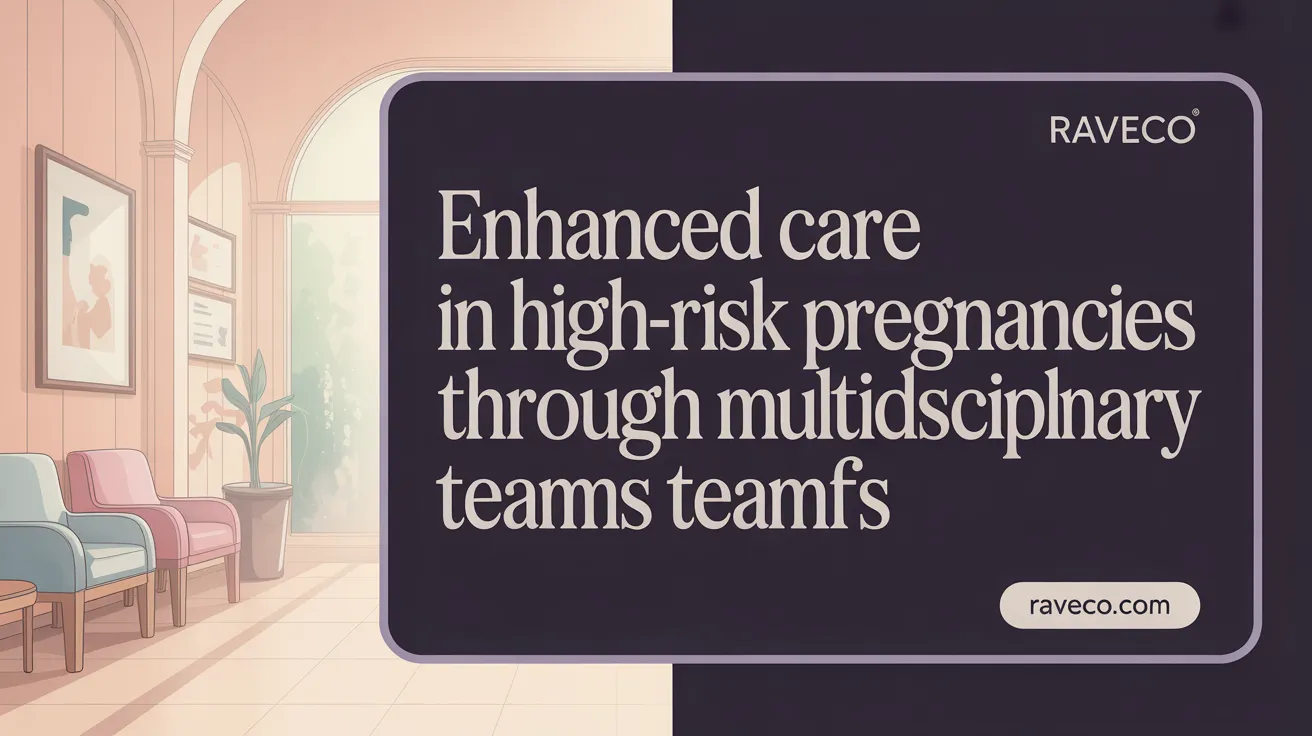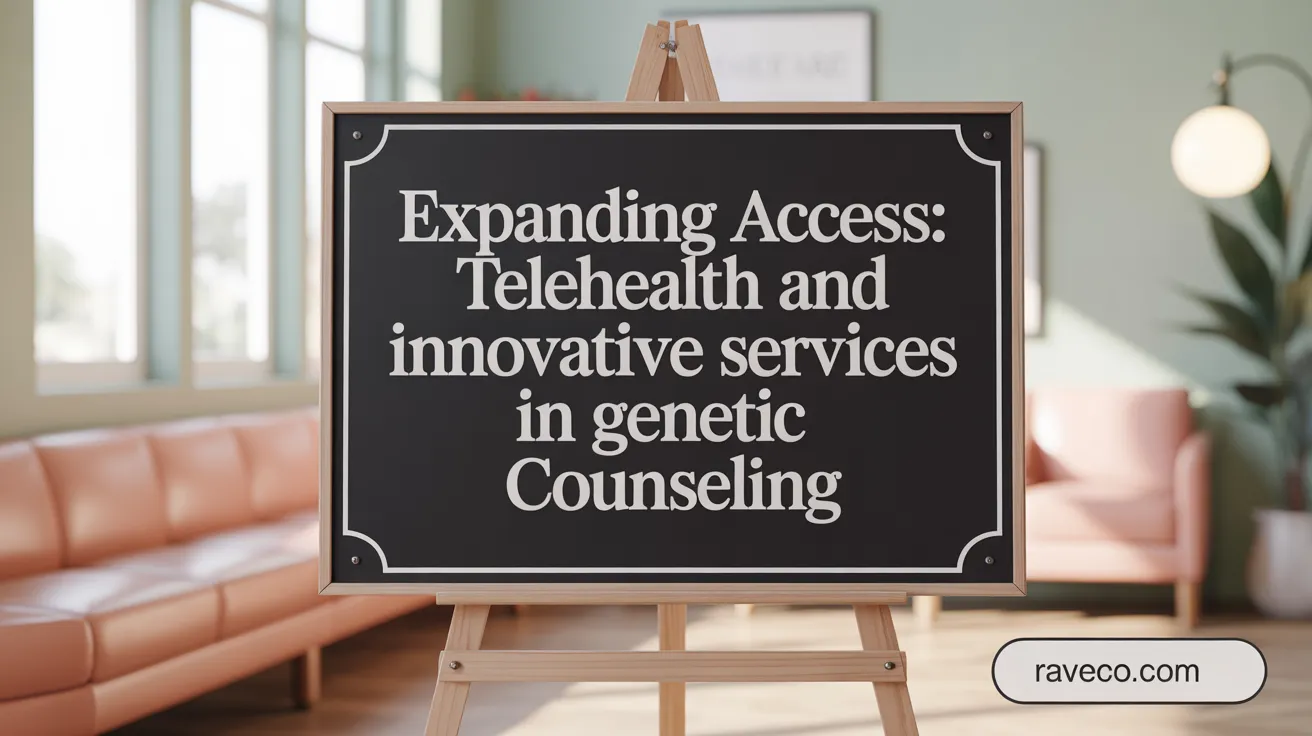Your Guide to Endometriosis: From Symptoms to Advanced Management

Understanding the Vital Role of Genetic Counseling in Pregnancy
Genetic counseling has become an indispensable part of prenatal care, especially for expectant mothers navigating the complexities of pregnancy risks and genetic health. Through personalized assessments, education, and emotional support, genetic counseling empowers women to make informed decisions that impact their own health and the future of their children. This article explores the multifaceted role of genetic counseling and risk assessment in empowering expectant mothers to take control of their pregnancy journey with confidence and support.
The Essence of Genetic Counseling in Prenatal Care

What is genetic counseling and who provides it?
Genetic counseling is a healthcare service delivered by specialized professionals such as certified genetic counselors, medical doctors, and nurses. These experts provide education and support to families by evaluating personal and family medical histories to assess risks for genetic conditions. They guide families in understanding complex genetic information and assist in making informed decisions about genetic testing and reproductive options (Genetic counseling overview).
When and for whom is genetic counseling recommended?
This counseling is beneficial before conception, during pregnancy, or even after childbirth, depending on circumstances (Genetic counseling benefits). It is particularly advised for individuals with a family history of genetic disorders, expectant mothers aged 35 or older (Genetic counseling for pregnant women aged 35 and over), those with abnormal results from prenatal screenings (Genetic counseling for abnormal screening results, and people belonging to ethnic groups with a higher prevalence of certain genetic diseases. Additionally, women who have experienced previous pregnancy losses or complications are encouraged to seek genetic counseling.
What does the genetic counseling process encompass?
The process usually begins with gathering a detailed family and medical history, followed by a personalized risk assessment (Genetic counseling process. Counselors educate patients about inheritance patterns, potential genetic conditions, and testing options. Testing can include carrier screening before pregnancy or various prenatal screenings and diagnostic tests, such as ultrasounds or cell-free DNA testing during pregnancy (Prenatal Genetic Testing). The counselors explain the benefits, limitations, and possible outcomes of testing, ensuring patients understand all aspects before making decisions.
How do genetic counselors contribute during counseling?
They serve as educators and emotional support providers, helping families comprehend test results and their implications (Emotional support in genetic counseling). Counselors also offer referrals to specialists or support groups when needed, fostering a holistic approach to care (Referral to specialists). Their involvement empowers families by combining medical insights with compassionate guidance throughout the prenatal journey (Empowering families through genetic counseling.
Advanced Genetic Testing and Risk Assessment in Pregnancy

What genetic tests are offered during pregnancy and what conditions do they assess?
Prenatal genetic testing encompasses both screening and diagnostic methods to evaluate fetal health risks. Screening tests, which are non-invasive, include cell-free DNA (NIPT) testing that analyzes fetal DNA circulating in the mother's blood. Serum screening tests assess biomarkers in maternal blood, and ultrasound techniques like nuchal translucency measurement evaluate physical markers associated with chromosomal abnormalities.
Diagnostic tests such as amniocentesis and chorionic villus sampling (CVS) involve sampling fetal tissue or fluid to confirm the presence of genetic conditions. These methods provide definitive diagnosis but carry a small procedural risk.
These tests commonly assess conditions including chromosomal abnormalities like Down syndrome (trisomy 21), trisomy 13, trisomy 18; neural tube defects such as spina bifida; and inherited disorders such as cystic fibrosis, sickle cell anemia, and Tay-Sachs disease.
How is risk assessment personalized during genetic counseling?
Personalized risk assessment is a central component of genetic counseling. It involves a detailed review of the prospective parents’ and family medical histories, focusing on known genetic conditions, ethnic background, and specific risk factors such as advanced maternal age (35 years or older).
Counselors evaluate past pregnancy outcomes, abnormal prenatal screening results, and personal health to estimate the probability of genetic disorders. This individualized process guides tailored testing strategies and supports informed decision-making on prenatal care and interventions. For more on this, see risk assessment in genetic counseling.
Technologies used and considerations for timing and safety
Modern technologies include advanced ultrasounds, such as 3D/4D imaging, and cell-free DNA screening performed as early as nine to ten weeks gestation. Screening tests are typically conducted during the first and second trimesters, with diagnostic tests reserved for cases with increased risk or abnormal screening results.
Cell-free DNA testing poses no risk to the fetus and can detect several chromosomal conditions with high sensitivity. In contrast, invasive diagnostic procedures carry a small risk of miscarriage and are timed after the first trimester findings.
Healthcare providers emphasize the voluntary nature of testing and ensure patients understand the benefits and limitations to facilitate informed choices. Additional details on genetic counseling services and test timing are available.
| Category | Tests/Methods | Conditions Assessed |
|---|---|---|
| Screening | Cell-free DNA (NIPT), serum markers, ultrasound (nuchal translucency) | Down syndrome, trisomy 13 & 18, neural tube defects, inherited disorders |
| Diagnostic | Amniocentesis, chorionic villus sampling (CVS) | Confirms chromosomal and genetic disorders |
| Risk Assessment | Family & personal history, ethnicity, maternal age | Guides personalized testing plans |
| Safety & Timing | Non-invasive tests early in pregnancy; invasive tests after abnormal screen or high risk | Minimizes risk while maximizing information |
Empowering Expectant Mothers Through Education and Emotional Support

How do genetic counselors support expectant mothers emotionally and in decision-making?
Genetic counselors play a vital role in providing compassionate emotional support to expectant mothers, especially those facing high-risk pregnancies. They help mothers manage anxiety, fears, and the psychological impact that comes with learning about potential genetic risks. By explaining complex genetic concepts in clear and understandable terms, counselors empower families to grasp the benefits, limitations, and implications of genetic testing.
Decision-making assistance is a cornerstone of genetic counseling. Mothers receive guidance on reproductive choices, such as whether to proceed with pregnancy, consider adoption, or prepare for a child with special needs. This support ensures that decisions align with the family's values and medical circumstances, facilitating informed decision-making in prenatal testing.
What follow-up support do genetic counselors provide after testing?
After genetic testing, counselors offer detailed interpretation of results, helping families understand what the findings mean for the current pregnancy and any future family planning. They also provide referrals to specialists when needed and connect families with support groups to address emotional or social challenges.
This ongoing support addresses psychological concerns and fosters a sense of empowerment. By integrating medical information with compassionate care, genetic counselors assist families throughout the pregnancy journey, promoting informed choices and emotional resilience.
Genetic Counseling in High-Risk Pregnancies: Specialized Care and Innovations

What constitutes a high-risk pregnancy and how does genetic counseling aid in management?
High-risk pregnancies are characterized by an increased chance of health complications for the mother or fetus. Factors include advanced maternal age (typically over 35), preexisting conditions like diabetes, hypertension, or autoimmune diseases, pregnancy complications, multiple gestations, and a family history of genetic disorders. These pregnancies require careful monitoring and specialized care.
Genetic counseling plays a critical role by offering personalized risk assessments based on family and medical histories. It helps expectant parents understand their unique genetic risks, discusses available advanced genetic testing options, and provides emotional support throughout the pregnancy. This guidance enables families to make informed decisions about testing, pregnancy management, and planning for future pregnancies, ultimately aiming to optimize outcomes for both mother and child.
How do multidisciplinary teams enhance genetic counseling in high-risk pregnancies?
High-risk pregnancy care often involves a collaborative team including certified genetic counselors, maternal-fetal medicine (MFM) specialists, sonographers, and pediatric experts. This multidisciplinary approach ensures that families receive comprehensive and coordinated care.
Certified genetic counselors explain complex genetic information, interpret test results, and support decision-making, while MFM specialists handle medical management and advanced diagnostic procedures. Sonographers provide detailed ultrasounds to detect fetal anomalies, and pediatric specialists prepare for postnatal care if needed. Together, these professionals utilize advanced technologies such as sophisticated ultrasound imaging and molecular genetic testing to better diagnose and manage complex pregnancies.
Advanced genetic testing techniques and multidisciplinary care teams
High-risk pregnancies benefit from leading-edge genetic tests, including screening and diagnostic tools for chromosomal abnormalities like Down syndrome, Trisomy 13 and 18, neural tube defects such as spina bifida, and inherited disorders like cystic fibrosis and sickle-cell anemia. Technologies such as cell-free fetal DNA testing and ultrasounds enhance early detection.
The integration of genetic counseling with obstetric and pediatric care through team collaboration improves accuracy in diagnosis, supports individualized care plans, and provides families with a continuum of care from prenatal to postnatal stages.
Innovations and research in maternal-fetal medicine
Maternal-fetal medicine experts continually lead innovations by incorporating new genetic testing methods and clinical research, such as investigations into rare conditions like non-immune hydrops fetalis. These advances contribute to improved standards of care and yield better predictive tools for pregnancy outcomes.
Genetic counseling is evolving to incorporate genomic data interpretation and scalable decision-support tools, helping families navigate complex test results and reducing anxiety associated with uncertain findings. For further insights, see supporting patient autonomy in prenatal genetic counseling.
Integration of genetic counseling with obstetric and pediatric specialists
The comprehensive care model ensures seamless communication among genetic counselors, obstetricians, MFM specialists, and pediatric teams. This multidisciplinary network addresses prenatal diagnosis, family education, emotional support, and preparation for possible interventions or specialized care after birth, empowering families with knowledge and resilience throughout high-risk pregnancy management.
For detailed information on multidisciplinary care and genetic counseling services, visit the Genetic Counseling in High-Risk Pregnancies resource.
Access and Future Directions in Genetic Counseling and Testing

How is genetic counseling becoming more accessible to expectant mothers?
Telehealth genetic counseling has significantly expanded access by allowing patients to receive expert guidance from the comfort of their homes. Virtual appointments, offered via phone or video, overcome geographical and logistical barriers, making counseling accessible to a wider range of expectant mothers. Many healthcare providers and centers now provide telehealth services for genetic counseling, some of which are covered by insurance or offered at no extra cost. This flexibility enhances convenience and allows timely consultations, even in underserved or remote areas.
What are the future trends and ethical considerations in genetic counseling?
The future landscape of genetic counseling is shaped by rapid technological advances like whole genome sequencing and expanded carrier screening (ECS). These technologies provide broader and more detailed genetic insights, potentially identifying risks for hundreds of inherited conditions before conception or during pregnancy. However, they introduce complexities such as uncertain clinical significance of some findings and the potential psychological impact on patients.
Ethical, legal, and social implications are central to these developments. Concerns include ensuring patient privacy, obtaining fully informed consent, and protecting against genetic discrimination in insurance or employment. Genetic counselors play a crucial role in navigating these challenges by educating patients, facilitating informed and autonomous decision-making, and advocating for equitable access to testing and counseling services.
Additionally, genetic counselors are adapting their roles beyond traditional settings. They are actively involved in designing decision-support tools like interactive videos and guides to help patients understand complex results, especially as genetic testing becomes more routine and complex. These tools aim to complement counseling sessions and support patient autonomy even outside direct counselor interactions.
Overall, the evolution of genetic counseling embraces technological innovation, ethical vigilance, and accessibility improvement, positioning counselors as essential guides in personalized genomic healthcare.
Empowering Mothers Through Knowledge and Compassionate Care
Genetic counseling and risk assessment play pivotal roles in empowering expectant mothers to navigate the uncertainties and complexities of pregnancy with clarity and confidence. By integrating advanced genetic testing technologies with personalized education and emotional support, genetic counselors enable families to make informed decisions tailored to their unique situations. As the field advances and access expands through innovations like telehealth, the promise of genetic counseling continues to grow—enhancing prenatal care, reducing risks, and fostering healthier futures for mothers and their children.





.png)